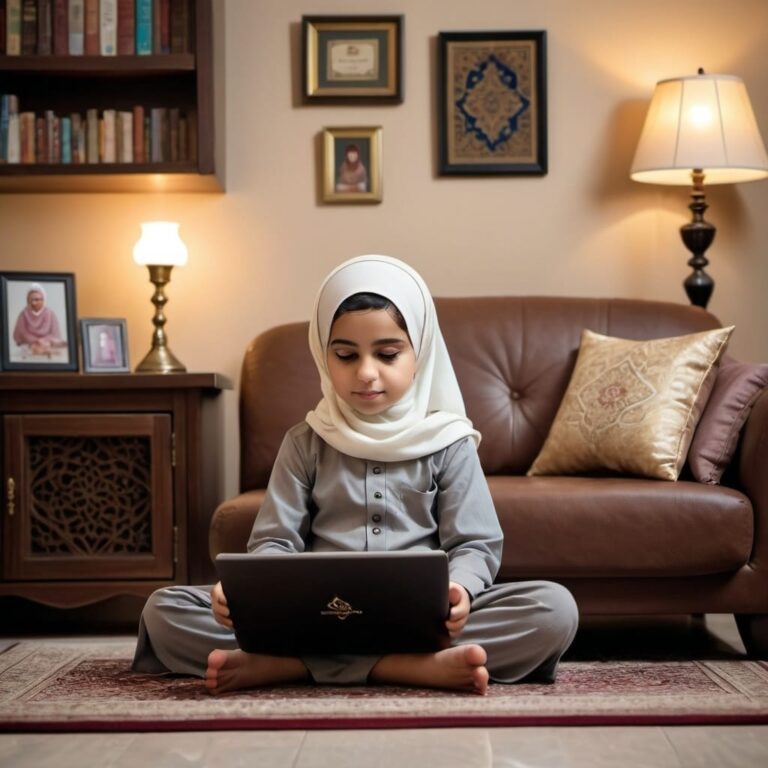7 Types of Qirat in Quran and Their Differences
The Quran is a undying spiritual manual that enriches the lives of tens of millions of Muslims round the sector. One fascinating thing of the Quran is the numerous modes of Quran recitation, called Qirat. If you are keen to deepen your information of these 7 types of Qirat, you have come to the right place.
Understanding Qirat
What is Qirat?
Qirat refers to the diverse techniques of reciting the Quran. Rooted deeply in Islamic way of life, Qirat plays a good sized function in retaining the Quran’s authenticity and beauty. Each Qirat has its precise set of guidelines and characteristics that enhance the recitation enjoy.

Importance of Qirat in Quranic Recitation
Qirat is not just about pronunciation; it encompasses the proper software of Tajweed regulations, which make sure that the Quran is recited because it turned into revealed to Prophet Muhammad (PBUH). Mastering Qirat allows keep the Quran’s original shape, making it an essential issue of Islamic research.
Overview of the 7 Main Types of Qirat
There are seven primary Qirat, each named after a prominent student:
- Hafs an Asim
- Warsh an Nafi
- Qalun an Nafi
- Al-Duri an Abu Amr
- Ibn Kathir
- Hamzah
- Kisai
Each of these Qirat gives a completely unique recitation fashion, adding intensity and richness to Quranic recitation.
The 7 Types of Qirat
Hafs an Asim
Origin: This Qirat is widely practiced and originates from Kufa, Iraq.
Features:
- Clear and simple pronunciation.
- Consistent application of Tajweed regulations.
- Often taken into consideration the usual recitation in non-Arabic speaking countries.
Example: Surah Al-Fatiha, wherein the pronunciation of “Maliki” is distinct on this Qirat.
Warsh an Nafi
Origin: Originates from Medina, Saudi Arabia, and is generally determined in North African nations.
Features:
- Uses a melodious tone.
- Differences in vowel pronunciations.
- Certain letters are said with a softer tone.
Example: Surah Al-Fatiha, the word “Maliki” is reported in a different way as compared to Hafs.
Qalun an Nafi
Origin: Also from Medina and predominantly utilized in regions of Libya and Tunisia.
Features:
- Similar to Warsh but with mild variations.
- Unique procedures to the elongation of vowels.
- Specific guidelines for the articulation of sure letters.
Example: The pronunciation of “Qalu” can range, including a unique taste to the recitation.
Al-Duri an Abu Amr
Origin: This Qirat originates from Basra, Iraq.
Features:
- Notable for its exceptional rhythm.
- Subtle differences inside the utility of Tajweed regulations.
- Popular in areas of Sudan and parts of West Africa.
Example: The way the letter “Ra” is said can be softer and greater flowing.
Ibn Kathir
Origin: Based in Mecca, this Qirat is one of the historic recitation patterns.
Features:
- Known for its clarity and precision.
- Utilizes traditional Makkan pronunciation guidelines.
- Less commonly practiced today but stays pretty reputable.
Example: The distinct pronunciation of letters consisting of “Qaf” and “Kaf”.
Hamzah
Origin: Comes from Kufa, Iraq, like Hafs.
Features:
- Notable for its deep and resonant tones.
- Strong emphasis on elongation and pauses.
- Requires a excessive level of talent and mastery.
Example: The way phrases are extended and articulated adds a dramatic effect to the recitation.
Kisai
Origin: Another recitation style from Kufa, Iraq.
Features:
- Combines elements from each Hamzah and Hafs.
- Unique regulations for preventing and beginning throughout recitation.
- Popular amongst scholars however much less so among the overall public.
Example: The pronunciation of vowel sounds can be particular and melodic.
Differences Between the 7 Qirat
Pronunciation Variations
Each Qirat has its precise pronunciation rules. For example, in Warsh, the phrase “Maliki” in Surah Al-Fatiha is mentioned with an extended “a” sound, instead of Hafs wherein it’s far shorter.
Lengthening of Vowels
The Qirat additionally vary in how they deal with the elongation of vowels. In Qalun an Nafi, elongation may be extra stated, including a musical excellent to the recitation.
Application of Tajweed Rules
The application of Tajweed rules can range significantly. For example, the regulations for merging letters (Idgham) or stopping (Waqf) can fluctuate, making every Qirat precise in its very own proper.
Learning Qirat
Strategies for Learning Qirat
- Enrol in Online Courses: Platforms like Learn Quran Online provide based courses in numerous Qirat. These publications offer step-via-step steerage, making it less complicated for novices to comprehend the complexities of various recitation styles.
- Practice with a Qualified Teacher: Having a informed mentor can make a extensive distinction. They can offer customized comments and assist you master the nuances of each Qirat.
- Consistent Practice: Regular exercise is fundamental. Dedicate time each day to practice your recitation, focusing at the specific regulations of the Qirat you’re gaining knowledge of.
Resources for Learning Qirat
- Books and Manuals: Numerous books offer special causes of every Qirat. “Al-Qiraat Al-Sab’a” through Imam Shatibi is a incredibly advocated useful resource.
- Mobile Apps: Apps like Quran Companion and Tarteel offer functions that assist you practice special Qirat on the move.
- Online Platforms: Websites like Learn Quran Online offer complete guides and resources that will help you grasp the art of Quranic recitation.
Qirat in Daily Practice
Enhancing Daily Recitation
Integrating Qirat into your daily recitation can notably decorate your knowledge and appreciation of the Quran. It lets in you to connect greater deeply with the phrases of Allah and guarantees which you are reciting the Quran because it changed into discovered.
Impact on Understanding and Memorizing the Quran
The one of a kind Qirat can also useful resource in memorizing the Quran. By expertise the diverse regulations and pronunciations, you may enhance your don’t forget and retention, making it less complicated to dedicate verses to memory.
Practical Tips for Daily Practice
- Start Small: Begin with shorter surahs and progressively flow to longer ones.
- Use Tasting Notes: Just as tasting notes in a wine manual decorate your appreciation, use certain notes to recognize the nuances of your recitation.
- Join a Community: Engaging with fellow learners can provide motivation and assist. Consider joining on-line forums or neighborhood examine companies.
FAQs on Qirat
What is the importance of Qirat in Quranic recitation?
Qirat ensures the right pronunciation and application of Tajweed policies, retaining the Quran’s authenticity.
How many styles of Qirat are there?
There are seven number one Qirat, each with specific guidelines and traits.
Is it essential to research all seven Qirat?
It isn’t always essential, but studying multiple Qirat can increase your recitation revel in.
How long does it take to grasp at Qirat?
The time required varies relying at the learner’s dedication and available sources.
What are a few not unusual demanding situations in studying Qirat?
Pronunciation variations and the application of Tajweed guidelines can be difficult.
Are there any mobile apps for gaining knowledge of Qirat?
Yes, apps like Quran Companion and Tarteel are useful.
What is the distinction between Qirat and Tajweed?
Qirat refers to the exclusive modes of recitation, at the same time as Tajweed is the set of rules governing pronunciation.
Can Qirat be utilized in daily prayers?
Yes, incorporating Qirat into day by day prayers can beautify your recitation.
Conclusion
Incorporating Qirat into your Quranic studies can profoundly impact your recitation, information, and connection with the Quran. By exploring the seven kinds of Qirat, you open your self up to a richer, more actual recitation revel in. Whether you’re a beginner or seeking to deepen your knowledge, the resources and strategies mentioned on this guide assist you to in your journey.
For the ones keen to take the next step, don’t forget signing up for publications on systems like Learn Quran Online. With the proper steering and willpower, mastering Qirat can grow to be a fulfilling and spiritually enriching endeavor.








